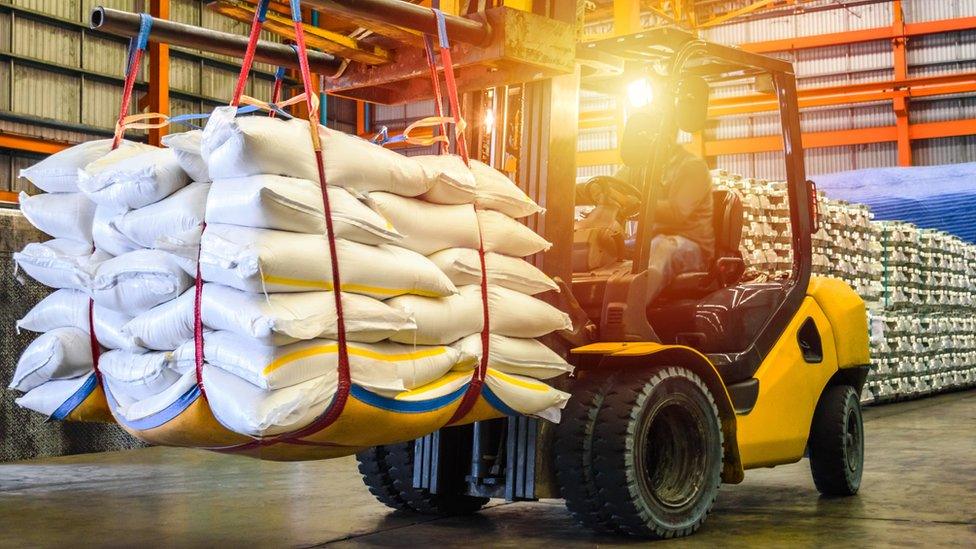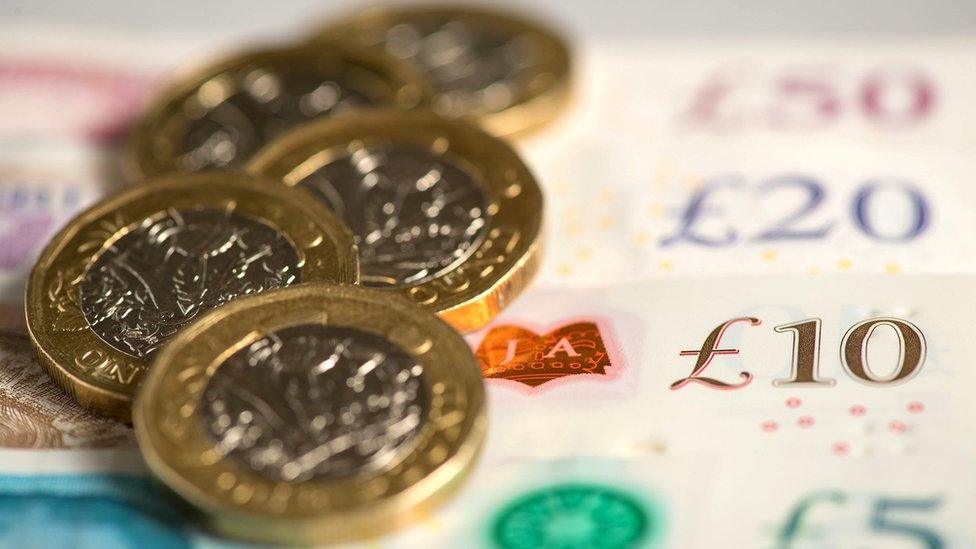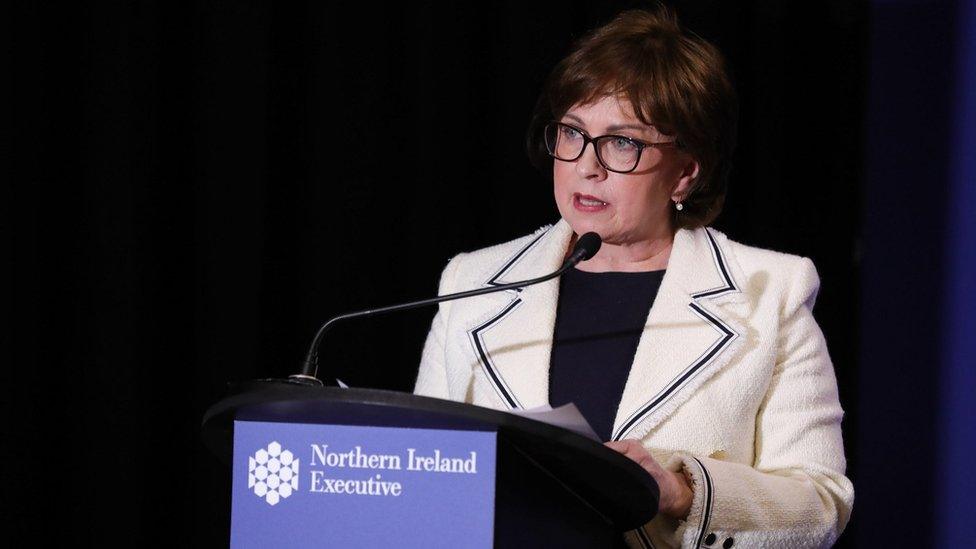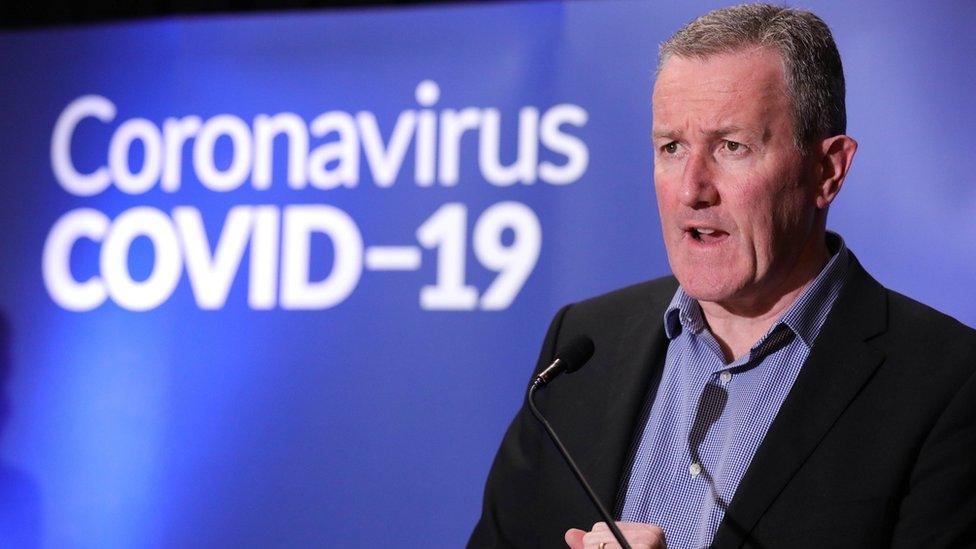Coronavirus: Economic shock to NI becoming clear
- Published

Support began to flow to Northern Ireland's businesses this week, but the scale of the economic shock is becoming clear.
Data from the Department for Communities showed that from 16 to 30 of March there were 33,000 new claims for Universal Credit (UC).
That is 10 times the normal rate of new claims.
Universal Credit can be claimed by low paid people who are in work as well as people who are unemployed.
So, while not a perfect measure of unemployment it gives some idea of what is happening.

EASY STEPS: How to keep safe
A SIMPLE GUIDE: What are the symptoms?
CONTAINMENT: What it means to self-isolate
HEALTH MYTHS: The fake advice you should ignore
MAPS AND CHARTS: Visual guide to the outbreak
VIDEO: The 20-second hand wash

Employment reversal
The Ulster University economist Richard Johnston has estimated it means the Northern Ireland unemployment rate will have leapt from a near record low of 2.4%, to more than 6%.
It took four years for the unemployment rate to come down from 6% to 2.4%
It now seems likely that has been reversed in less than a month.
There will be worse to come.

There were 33,000 new claims for Universal Credit in NI from 16 to 30 March
The EY economist Neil Gibson laid out two scenarios this week.
Firstly, he considered a high level of economic disruption until the end of May 2020, with business beginning to return to normal after that.
In that scenario it is estimated that Northern Ireland's GDP will be 6.7% lower in 2020, with job losses of 78,000.
The second scenario is of a high level of economic disruption until the end of August.
In that case, Northern Ireland GDP is projected to contract by 10%, with job losses of 132,000.
We also got some initial figures on the take-up of the government’s job retention scheme in Northern Ireland.
It involves employees being told not to come to work with the government paying 80% of their wages, up to a limit of £2,500 a month.

The Economy Minister Diane Dodds said companies have notified Invest NI that 17,000 workers will be in this scheme
That will not be the total number because those notifications are only from Invest NI supported companies.
Businesses and employees would like more information on the nuts and bolts of the scheme - particularly when it is going to pay out.
Grants of £10,000 to small businesses began to arrive in bank accounts this week.
As of Friday lunchtime 10,000 payments had been issued with a further 5,000 being processed.
It seems likely that next week about 2,500 small manufacturers who do not currently qualify for that grant will be brought into the scheme next week.
Mrs Dodds is bringing a proposal to the executive which will receive a sympathetic hearing from Finance Minister Conor Murphy and other ministerial colleagues.
Mr Murphy delivered a budget this week which included a cut in business rates and a freeze in domestic rates.
Many businesses would also like to see the current policy of a three-month rates waiver extended to the full year.
That does not appear to have full executive support at the moment, but could be revisited as the crisis develops.
The government-backed coronavirus loan scheme also got under way in earnest this week.
The operation of the scheme had to be hastily revised after the government suggested the banks had been foot-dragging while the banks said the government had oversold what was on offer.
Danske, which is probably the biggest business lender in Northern Ireland, says it has made already 49 loans under the scheme, to a value of £13m.
So various sources of cash are being infused into some businesses.
But for others it may already be too late.
- Published2 April 2020

- Published31 March 2020

- Published28 March 2020
